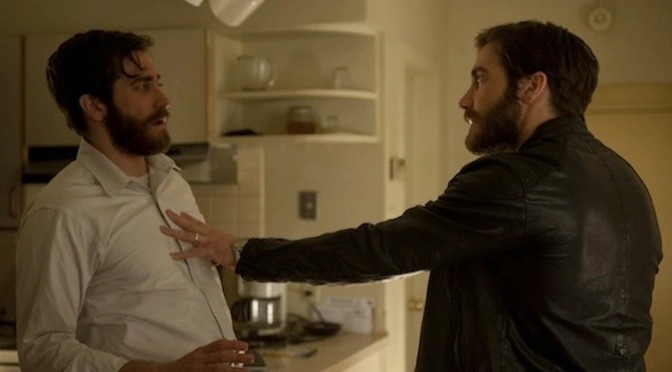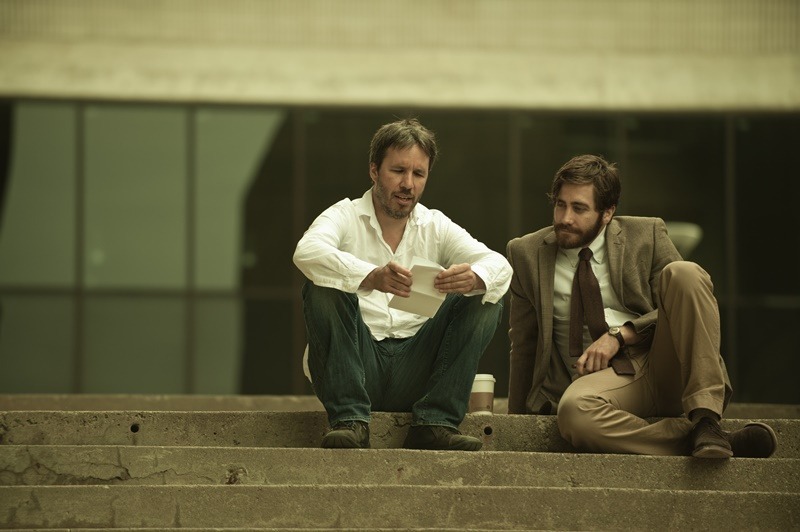Enemy (2013)

Released in 2013, Enemy is a surreal psychological thriller directed by Denis Villeneuve and produced by M. A. Faura and Niv Fichman. Written by Javier Gullón, the film is loosely adapted from the 2002 novel The Double by José Saramago. Starring Jake Gyllenhaal in dual roles, the film explores themes of identity, paranoia, and the fractured nature of the human psyche. With its unsettling atmosphere and complex narrative, Enemy challenges viewers to question reality and confront the darker aspects of the self.
The plot of Enemy follows Adam Bell (Jake Gyllenhaal), a history professor living a monotonous life in Toronto. One day, while watching a movie, he spots an actor who looks strikingly like him. This discovery leads Adam to track down the actor, Anthony Claire (also played by Jake Gyllenhaal), who is living a completely different life. As Adam becomes increasingly obsessed with his doppelgänger, the lines between reality and illusion begin to blur. The two men’s lives become intertwined in a series of disturbing events, leading to a psychological spiral that questions the nature of identity and existence.
Jake Gyllenhaal delivers a standout performance in Enemy, portraying two distinct characters with subtle nuances that highlight their internal struggles. Adam is a quiet, repressed individual, while Anthony is a more confident and reckless man, creating a fascinating contrast between the two. The film explores how both characters are reflections of each other, representing different facets of the same person. As the story progresses, Gyllenhaal’s portrayal becomes more complex, as the characters’ identities and motives become intertwined, ultimately leading to a profound revelation about their true connection. The performances are pivotal to the film’s psychological depth and the unraveling of its intricate narrative.
At its core, Enemy explores the theme of identity, particularly the fear of losing oneself or confronting parts of one’s personality that are hidden or repressed. Adam’s initial discovery of his doppelgänger triggers a deep sense of paranoia and confusion, as he begins to question his own identity and the reality around him. The film delves into the unsettling idea that one’s identity is not fixed, and that the self is fragmented and multifaceted. This exploration of duality is heightened by the psychological tension, as the characters grapple with the idea that they may be living a life that isn’t entirely their own.

Enemy is rich in symbolism and surreal imagery, with many scenes designed to provoke thought and interpretation. The film often blurs the lines between dream and reality, using visual motifs such as mirrors, keys, and spiders to represent themes of entrapment, fear, and the subconscious. The recurring imagery of the spider, in particular, becomes a powerful symbol of control, danger, and the web of interconnectedness that binds the characters together. Director Denis Villeneuve uses these surreal elements to heighten the sense of unease and to challenge the viewer’s perception of what is real and what is imagined. This symbolic approach gives the film an eerie, dreamlike quality that lingers long after the credits roll.

The pacing of Enemy is slow and methodical, building tension gradually as the plot unfolds. Villeneuve creates an atmosphere of unease, where every moment feels charged with impending doom. The psychological tension is palpable, as Adam and Anthony’s lives become increasingly intertwined, and the threat of violence or catastrophe looms on the horizon. The film’s pacing mirrors the mental unraveling of the characters, drawing the audience deeper into their fragmented minds. The deliberate pacing allows for a slow-burn effect, where the tension continuously builds toward a haunting and ambiguous climax that leaves viewers questioning the entire narrative.

Enemy is a chilling and thought-provoking psychological thriller that explores the complexities of identity, paranoia, and the human psyche. With its surreal imagery, strong performances, and unsettling atmosphere, the film keeps the audience engaged while challenging them to consider the nature of reality and the self. Denis Villeneuve’s direction and Jake Gyllenhaal’s dual performance make Enemy an unforgettable cinematic experience. Its ambiguous and symbolic ending invites endless interpretation, making it a film that resonates long after the viewing experience. Enemy is a powerful exploration of the darkness within us all, and a masterclass in psychological storytelling.











